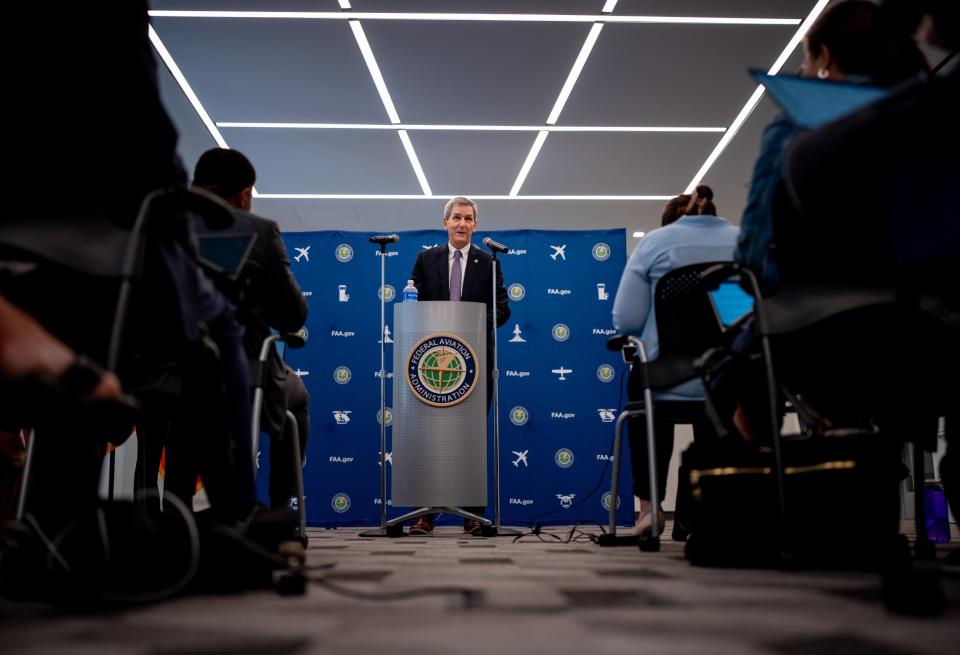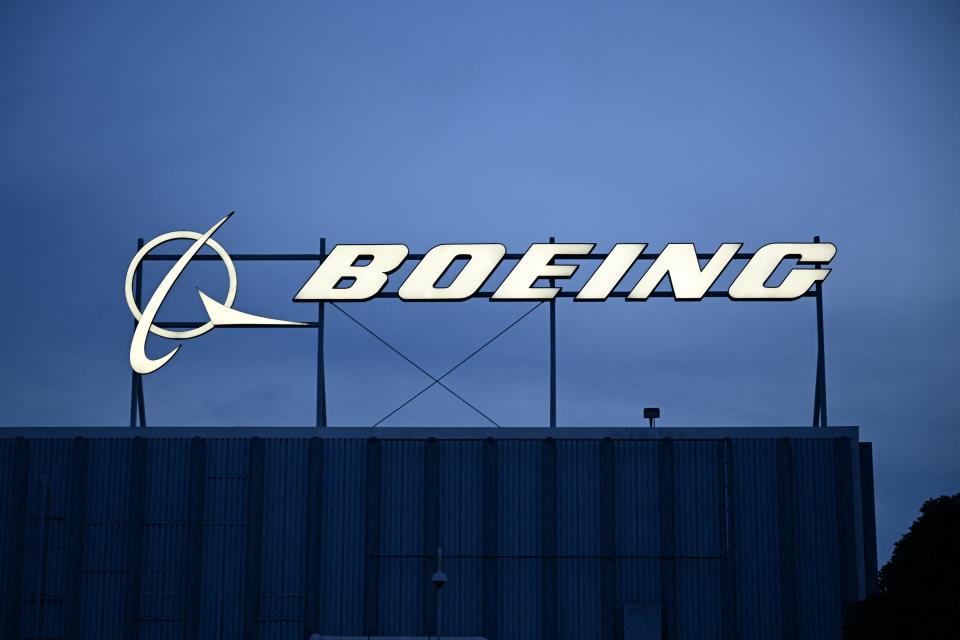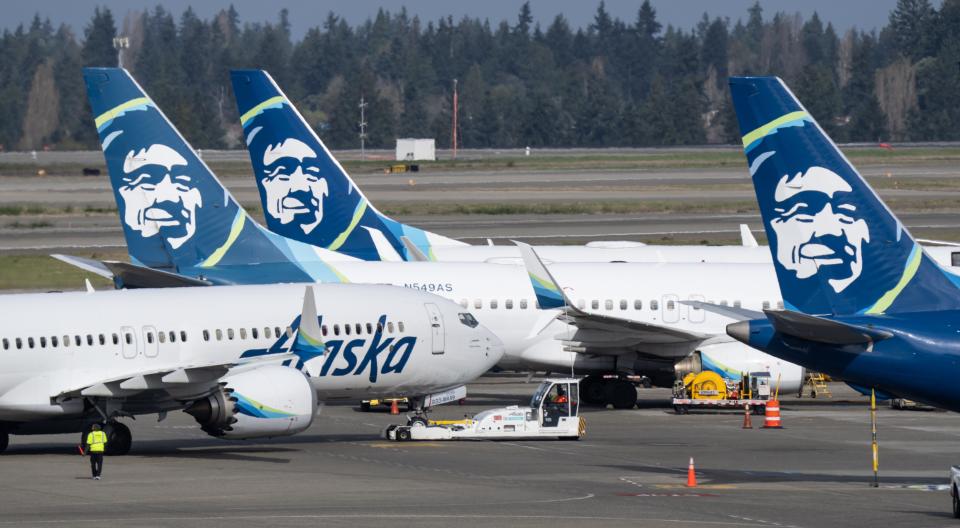FAA says it doesn't 'have a timeframe' for when Boeing will be allowed to increase production of its 737 Max planes again
The FAA had a three-hour meeting with Boeing leaders to address safety and quality issues.
The agency later suggested it'd be a while before Boeing could increase 737 Max production.
Boeing's manufacturing came under scrutiny after a door plug fell off an Alaska Airlines plane.
Boeing won't be expanding its fleet of its 737 Max planes anytime soon, according to the FAA's administrator.
The airplane manufacturer is still navigating the fallout from a January 5 incident in which a door plug on an Alaska Airlines passenger plane detached during a flight, forcing pilots to make an emergency landing. Though no passengers were seriously injured, the Federal Aviation Administration barred Boeing from expanding production on Max plane models until quality and safety issues were addressed.
The incident prompted the FAA to crack down on Boeing and implement aggressive oversight measures that the agency discussed with reporters last week. The FAA hosted a press conference after a three-hour meeting with Boeing leaders at the agency headquarters.

FAA Administrator Michael Whitaker answered a question from a reporter who asked when Boeing might be able to expand production of its 737 Max planes.
"We don't have a timeframe, but I don't think it will happen in the next few months," Whitaker said in a video shared by CBS News.
The FAA grounded 171 Boeing 737-9 Max planes in January before launching its investigation into Boeing's production lines and manufacturing practices. It also halted production of all Max planes that month.
"This is about systemic change, and there's a lot of work to be done," the FAA said in a statement to Business Insider. "Boeing must meet milestones, and the timing of our decisions will be driven by their ability to do so."
Boeing's safety 'road map'

The FAA also published a news release Thursday that shared details about its meeting with Boeing leaders, who presented an 11-page "road map" for how the company would improve quality and safety.
The news release says Boeing developed the proposal over 90 days with "detailed" input from the FAA.
A Boeing representative told BI that the proposal fit into four categories of action:
Invest in workforce training
Simplify plans and processes
Eliminate defects
Elevate safety and quality culture
The plan identified "attention areas" that Boeing would prioritize, which included strengthening its Safety Management System and reducing supply-chain defects.
Boeing also identified short- and long-term improvements it would prioritize, such as "improving employee training" and "simplifying installation and build plans."
"We listened to our employees, engaged transparently with our regulator, welcomed the findings and recommendations from the FAA's ACSAA panel review, and invited scrutiny from customers and independent experts," the company's president and CEO, Dave Calhoun, said in a statement.

In response to Boeing's plan, the FAA said it would continue to review progress and laid out stipulations for the company.
"Senior FAA leaders will meet with Boeing weekly to review their performance metrics, progress, and any challenges they're facing in implementing the changes," the news release said. "They also will conduct monthly reviews to gauge Boeing's progress."
Other measures included hiring more safety inspectors at Boeing and Spirit AeroSystems facilities.
The FAA said in its statement that it would ensure Boeing "implements the changes they have outlined."
"We will not approve production increases beyond the current cap until we're satisfied they've followed through on implementing corrective actions and transforming their safety culture," the statement said.
Read the original article on Business Insider

 Yahoo News
Yahoo News 
